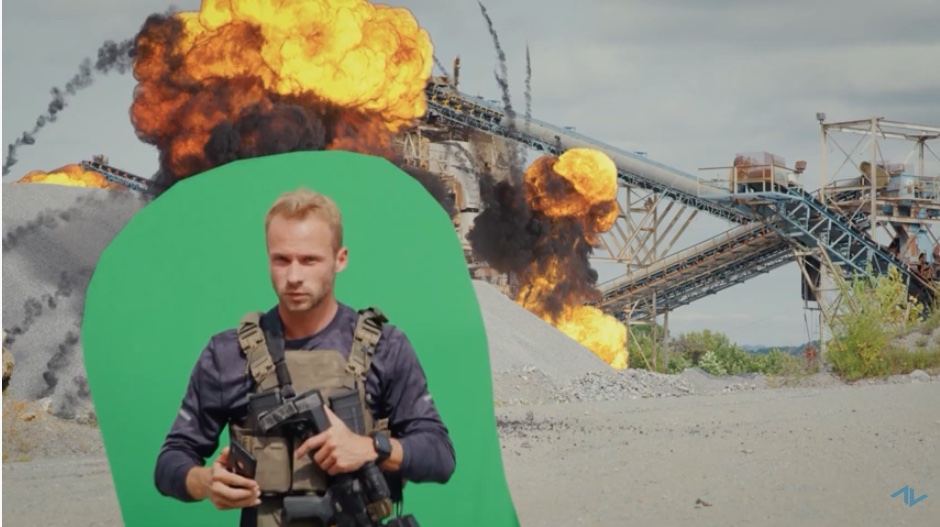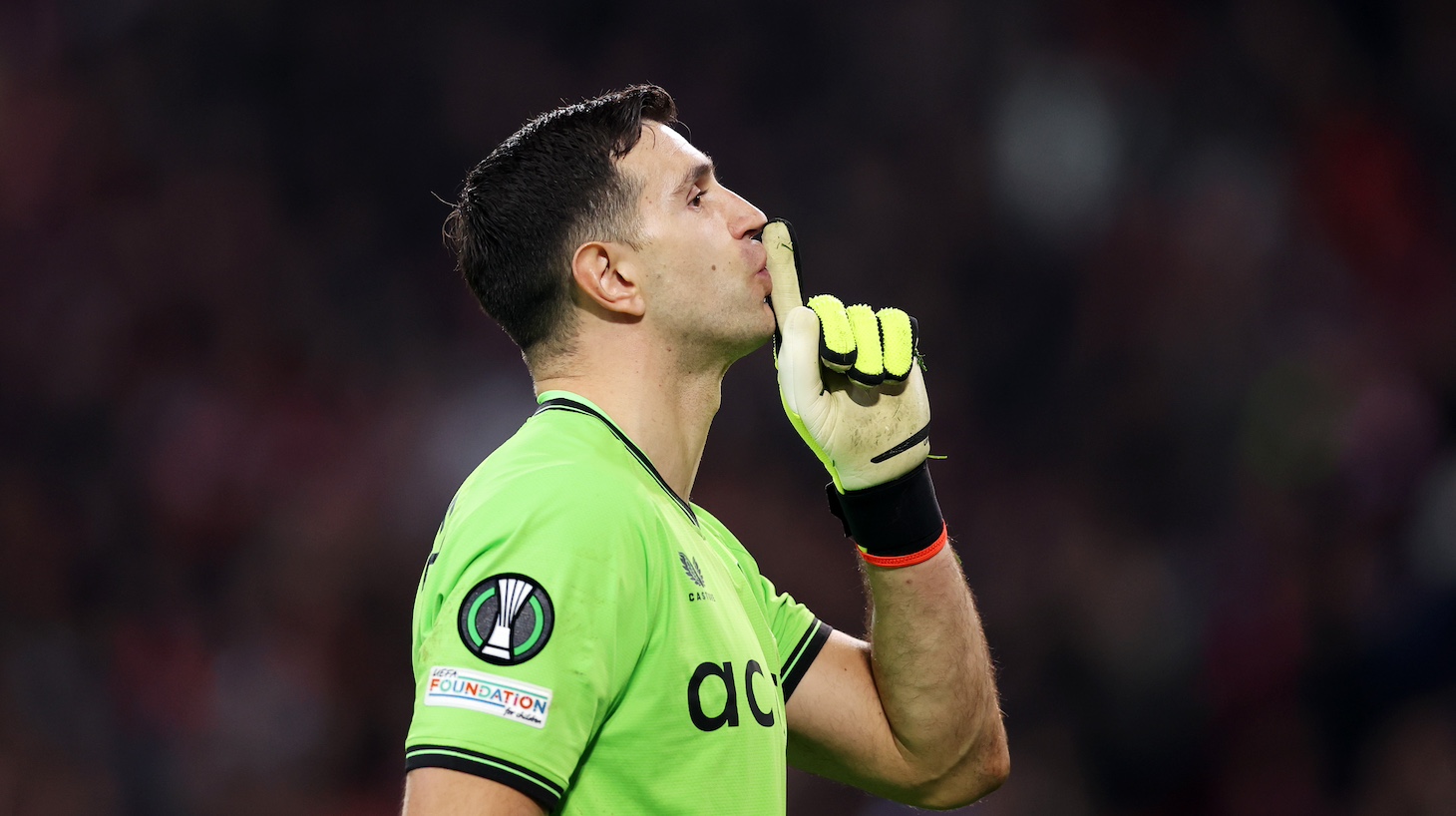“They’ve Got To Pee On It”: A VFX Supervisor Explains Why Their Job Is So Tricky
1:49 PM EDT on June 3, 2022

After an anonymous writer in Hollywood spoke to Defector a few weeks ago about the uneven state of post-production in the industry right now, a number of other TV and film professionals reached out to us to tell us about their own experiences. What’s become clear from talking to these people is that no two horror stories from the trenches are alike. If you see poor craftsmanship up on the screen—even in movies that can theoretically afford to look flawless—there’s rarely a single universal culprit. There are multinational conglomerates looking to cut corners, high-ranking executives who don’t understand what it is they’re making, logistical tangles, uneven budgets, and so many hands that do not know what the other hands are doing. In the middle of all of that are a bunch of confused and overworked laborers left to make sense of the job they’ve been handed, often with little time to do it.
One such laborer I’ll call Supervisor X, who has done composite effects work in television, and also worked on the Nicolas Cage 3D masterpiece Drive Angry. Supervisor X spoke to me on the phone this week to talk about those projects, why no muzzle flash is ever large enough for Sly Stallone, and much more. This interview has been edited for length and clarity. Specific details have been redacted to help protect the identity of Supervisor X.
Defector: Can you tell me about your work?
Supervisor X: I'm a visual effects supervisor. Primarily, I live in the comp supervisor world, especially 2D. Right now I'm just a hired gun. I go wherever the money is greenest.
What does comp supervisor mean?
Comp supervisor runs the compositing crew: the people that actually combine everything together. They'll take shot footage, or CG assets, or stock footage from wherever. They're the ones that put all that stuff together to make the final image that goes on screen.
When that happens, are you in a room with the editor and the director?
No. It depends on where you're at in the industry, because every TV show has a different workflow, but you don't typically deal with a TV director once you're in post because nobody cares what they think. Once they wrap the day, they're gone.
I went to film school at University of Texas, which I hated because it was more about film trivia than it was making pretty stuff. I came from a visual arts background: painting and photography. There was a job opening in Louisiana for Visual Effects Editor. Because I had five years of Final Cut Studio under my belt, I applied for that. They hired me as a compositor. I was like, "I don't know what that is," and my boss was like, "You'll be all right." [laughs] He gave me some demo software and sent me home. I started the next month.
What was your first project?
The Expendables. For that movie, we were the satellite office in Louisiana. The home office was actually in Bulgaria. We were doing the lower-tier stuff: muzzle flashes, bullet hits, sparks, debris. Some light green screen/blue screen stuff. All the CG-heavy stuff stayed in Bulgaria with the main team.
Are those effects that you were creating on a sound stage to go into the shot?
No, most of that stuff was either hand-drawn, painted, or stolen from somewhere. Some of it’s licensed from stock, like Getty Images. Then there are other places. They have Action VFX, where it's in stock footage shot specifically for visual effects. Somebody went and shot a bunch of different guns over a black screen with the lights off. We're taking those and then putting them at the correct angle and timing. Action Essentials is another big one. When you see blood spurt out of somebody, there's an 80 percent chance that it's Action Essentials bloodshed from that angle. Once you know what they look like, you see them in everything. I'll be watching TV and be like, "Oh, they didn't even try that hard."
For The Expendables, how much were you using these stock effects rather than creating your own? What is the percentage if you could ballpark it?
We were actually hand-painting some of them because the magnitude of the muzzle flashes that they wanted didn't exist. Guns don't look like that. We were creating stuff out of thin air.
Was that more rewarding than using the stock? I imagine it was.
I don't know. This is where I have a different opinion about this than a lot of folks. Visual effects, in the modern sense, is just digital manufacturing. At the end of the day, it's about clearing shots more than it is being artistic. It's, "Okay, we have 50 of these shots we have to do. Let's clear them out as fast as we can." I know there are some folks that disagree heavily with me, but it depends on where you live on the spectrum. Just get them finished and get them shipped.
Did you watch the final cut of The Expendables? What did you think of it in terms of the craftsmanship?
We did all right. None of us had any training. I'd never composited before in my life. I made lead artist after a month, which isn't the way to do it. If I had to do it again, I'd rather have somebody teach me.
Do you think your experience was common, being thrown into the fire without the proper training for it?
It depends on where you came up. I came up in tax-incentive states. Well-liked talent doesn’t go work in tax-incentive states. They stay in LA. They stay in New York, where they own a home. They have lives, families, and reasons to not go other places. For me, I just wanted to eat. I was going to make two-and-a-half times the money working in Shreveport than I'd been making living in Austin. It was a no-brainer. But because of that, you don't get much talent coming through those places.
There are a lot of us who came up in those late 2000s and learned on the job. Mostly trial and error. Visual effects, in the modern sense, have only existed since probably right around that time period. I know a lot of people look at Jurassic Park and Titanic as the turning points, but they were still shooting miniatures. They were still doing a ton of practical effects and then augmenting them with visual effects. By 2010, a lot of stuff had flipped. There are still some special effects, but a lot less miniatures and a lot more pure digital creation.
Who is making that decision to go all digital?
Most stuff's driven by the dollars. They almost always err on the side of whatever's more budget-friendly or schedule-friendly. The effects of old, they would spend crazy amounts of time building out miniature cities, props, etc. Now, a lot of that can be offloaded to post. That's the other thing too: production is always trying to move dollars to the other side of the line, because it's accounted for differently. It doesn't hit their budgets in the same way.
How does it not hit their budgets in the same way? Is it someone else's problem?
It's a mixture of someone else's problem, but they also they have clear demarcations between what's production money and what's post-production money. All the shit basically rolls downhill, and visual effects is usually the last stop, unfortunately.
Is it a situation where they can put it all on VFX at the last second and then, when the final product looks bad, they can say either, "Oh, well, it's the house's fault," or, "We still got done on time, so who gives a shit?"
It's both of those. Some houses have tried to play it different, like what you saw with Digital Domain [NOTE: Digital Domain is the effects house started by James Cameron]. They opened up satellite offices in different places. They opened up in Florida and Port St. Lucie. They pulled Ender's Game through there. They did that on points [NOTE: Doing a movie "on points" means you trade off some/all of your upfront fee in favor of a percentage of what the film ends up making], and it basically led to their second bankruptcy. They shuttered that operation really fast after they'd opened it up. These big studios are working with local governments and tax incentive state governments, and they're getting 30 percent, 35 percent tax credits. Then you can take that tax credit and sell it for cash at $0.85 on the dollar. A lot of these places recoup half of their production or half of their post just in tax credits and selling those tax credits.
What do you mean by selling a tax credit? Like a lump sum payment?
Right. Once that tax credit exceeds your tax liability, you don't get the difference. That's why most places just take it as cash.
Are studios now more tempted to go to these states because there's hungrier talent there, and they can exploit them to greater ends?
Yes. It's 100 percent dollars. Almost everything's driven that way.
Visual effects is interesting because you don't come up in visual effects being a slick talker, like you can in the rest of Hollywood. It is much more talent-based and merit-based, at least in my opinion. If you're really good at what you do, you can move up and be good. But you still get the guys that don't know what they're doing, who have managed to get themselves into really high positions but don't know how a green screen works.
Did you ever meet one such person who ran a studio but didn’t know how a green screen worked?
Yes. It's not uncommon, and also part of it is how young we are as an industry. People in the traditional leadership roles are boomers or Gen X guys, and what we do now didn't exist when they were coming up. They’ve never touched it. You see it more on the producing side, where somebody can be an executive producer for, like, Apple TV+ and not understand the minutiae. Because we are the last stop on that train, we have to take care of that minutiae.
I did Expendables, and then we jumped into a [redacted] movie called [redacted] and, at the same time, a Nic Cage movie that was shot in stereo called Drive Angry. Those were my first three features.
Oh man, that is a very manly triple bill.
[laughs] I probably lost five years off my life. It was brutal. Drive Angry, we ran two shifts, basically 12 hours each. The seats never got cold. I ran the night shift. You have two cameras shooting at the same time to make it a 3D movie. This shop didn't even give us the legit stuff. We were doing an anaglyph to start, so we had red and green glasses.
Like it was fucking 1950?
Oh yes. Dude, I can't put those glasses on anymore. I have a tumor back there that pulses when I put them on now.
What were your hours for the night shift?
We started out doing eights. They'd work 8:00 a.m. to 5:00 p.m., and we’d work 5:00 p.m. to 2:00 a.m. in the morning.
So you at least got to go home at some point.
Well, we started that way. As [redacted] and Drive Angry got more and more out of control and behind schedule, the day shift started pushing later. We started working seven to seven. This was [redacted company], which was owned by [redacted company]. They were basically using us to funnel American-branded stuff to Bulgaria.
So the company itself was Bulgarian?
Yes. [It] was owned by an American, but Bulgaria-based. They were having trouble getting a handle on big U.S. gigs because nobody wanted an Eastern European visual effects house. They opened shop in Louisiana because directors, producers, and showrunners were a little more amenable to pushing work to an American visual effects company.
So it was effects laundering?
There was some of that too. It was all starting to feel a little weird, like we were a front. This is back before you could digitally move shots through the internet. We would get the physical drive in the mail, plug it into our server, close it, and then it would get pushed to Bulgaria from there.
Using you as a middleman and not even having you do some of the work.
Yes. My guess is they were claiming the tax credits but not doing the work locally. That's conjecture.
I left. I did a brief stint in LA working for Deluxe in a skunkworks department, and then got a call from Brainstorm Digital in New York, asking if I wanted to come work on Boardwalk Empire. I worked on Season 2 and some of Season 3. The stuff that I really anchored a lot of was Richard Harrow [played by actor Jack Huston]. He got shot in the war, blown up by a mine or something, so he is missing half his face. We did a digital half-face for him.
Then I did a bunch of the boardwalk shots, the big exteriors where you see the beach and pier. They built a physical boardwalk, but it literally stops at the boards, and then it's blue screen from there up. There's no real beach for the bulk of the shots unless it shows them standing on sand, and even a lot of the ones where they're on sand, we did a ton of set extensions. That was one of the first big TV shows where people didn't know they were looking at effects. They won two Emmys in a row for Boardwalk, and the first season actually beat Game of Thrones.
Did Brainstorm Digital have their shit together more than on the movies you worked on before that?
Oh, yes. Yes, totally different experience. That said, I got bored as hell. I was so burnt out on doing 1920s period stuff. A comp supervisor gig opened up at [redacted company], so I jumped over there. I did like 13 shots in a season on Boardwalk Empire. I was in each one for weeks at a time. I did 13 shots my first day at [redacted company].
For me at that point, coming off of Boardwalk, it was a job more than an artistic release. That's when I started learning the difference of what bar we’re jumping over. That's something I establish with new clients these days. "Okay, what are we going for? Is it hyper-real? Is it ‘We don't care, we just need it to be okay’?" That's something to arbitrate on any project now.
Do you find that those answers are not uniform?
They're not uniform at all.
Is that part of the problem, then? Maybe it's my problem, because I expect everything to look real. I consider it a failing if it does not meet that standard for me as a viewer, but perhaps I am being unreasonable?
It really runs the gamut of who your master is and what exactly is important to them. That's something I really try to impart to my artists, especially if I'm growing a comp supervisor. I tell them, Ask what's important to them, because you'll waste a ton of time making it look real when they don't care. They just want it on the screen so that they can get paid for it.
As an audience member, how do you see the quality of post-production now?
I honestly don't consume a whole lot. I'm so jaded by it. The vast majority of stuff I've worked on, I've never seen. All I have to do is see it once to see the flaw. It's not as much fun as it used to be. I'm basically ruined on narrative fiction.
I always start at what's physically real and physically correct. Then somebody who doesn't know physics or light is telling us, "Well, I can't see it." It's like, "Well yes, it's the bottom of a hole in a dark room. There's nothing to see." You see a lot of visual effects get plussed up in a way that's unnatural, because you have people who just want to see their money getting used. They’ve got to pee on it. They got to make it theirs, and usually they do that with the very last thing.
I want them to pee on it early. Let them pee on it and then we can polish it, because now they've had their input and they get to feel better about themselves. We wind up with a better product and everybody's a little happier. Some places don't feel that way. Stallone was one of those guys where he wants the muzzle flashes to be eight feet long coming out of a pistol. We're six versions in, they keep saying, "Bigger."
Well in Sly’s case, he probably wants to amp it up for style.
I know. That's his thing. I grew up with guns. I grew up around guns and I'm like, "Muzzle flashes don't look like that. It's got a flash suppressor on it. It wouldn't even make a flash.'"[laughs] But he knows what he's doing. He has a touch. Expendables went number one and they made three more movies after it. Who's to say he's wrong? But there are a lot of folks who are just wrong for the wrong reasons.
The other interesting thing is that there are not enough people to do the work right now. I don't know if y'all are chasing any of those angles.
That is something I have heard many times: that there's not enough people.
But it's our own doing. We outsourced everything to India to save dollars, and so we gutted our lower ranks for years and years and years.
What got outsourced to India? The effects themselves?
The super low-level stuff. Instead of spending time building junior artists and employing junior artists, they just said, "India will do it for $1 a frame." It got to the point where, from a security standpoint and from a financial standpoint, it made more sense to send it to India or China or South Korea and pay pennies on the dollar for the same labor. There are whole shops that operate like this. Everything below a certain line gets straight shipped to India. India is bidding on it. Then they mark that up four or five, 10 times, re-stamping it on their end, and delivering it to the studios.
Can you name any of those companies?
Not specifically. It's rife in the industry. You see it with more boutique shops just because they can, but the big shops are already capitalizing on that labor directly, not shipping it to a third-party vendor. We've seen a lot of attrition of the higher levels because of that. A lot of guys like me have checked out. As long as the work gets done, nobody cares. We just don't have the people to backfill. It's an interesting industry to be in, especially on the cusp of whatever financial ruin we're all headed for.
If you work in Hollywood and are interested in talking to Defector about visual effects practices, or anything else going on within the industry, please contact us via our tips line. We will protect your identity at every stage of the reporting process.
If you liked this blog, please share it! Your referrals help Defector reach new readers, and those new readers always get a few free blogs before encountering our paywall.
Columnist. Author of many fine works of literature, including Point B. Handsomest man in the world.
Read More:
Stay in touch
Sign up for our free newsletter




